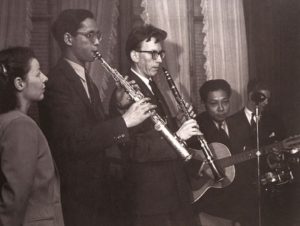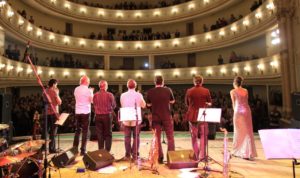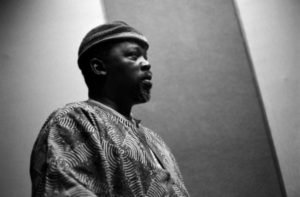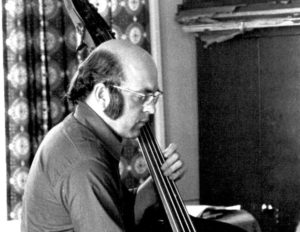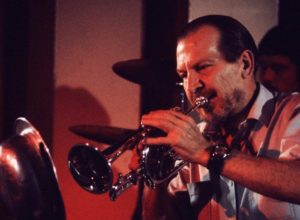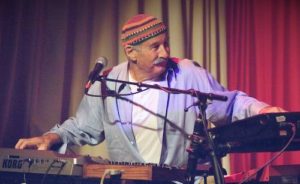Jazz in Libya
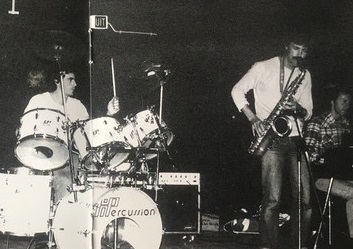
I knew in starting this website that I would come across countries where it is hard to say much about the impact of jazz. Libya is a case in point. Muammar Gaddafi’s 42 years in power appear to have had a truly catastrophic effect on the cultural, as well as the social and psychological lives of Libyans. Wikipedia’s entry for ‘Music of Libya’ runs to 150 words in total. Two musical artists are name-checked – one, traditional singer-songwriter Mohammed Hassan seems to have genuinely seen Gaddafi as a hero, and composed songs to honour his achievements. Hassan famously played a five hour concert in a decorative tent near to the Royal Albert Hall.
Western music was virtually outlawed, with bonfires organized to destroy any instruments (drums, trumpets, guitars, saxophones, etc) that “contribute to the distortion of our genuine Arab culture and heritage″ as the State news agency put it. Talented pop star, Ahmed Fakroun, who initially had some success, recording and receiving enthusiastic airplay in Europe, certainly saw his career flounder in a way that a pro-Gaddafi artist like Hassan didn’t.
In this environment, it is not surprising that those jazz musicians that Libya did produce, sought to relocate. Tripoli-born Drummer Roberto Haliffi (pictured), a Sephardic Jew, has been in Holland since 1977, while Kamal Ben Hameda left Libya in the 1970s, and has also ended up in the Netherlands, where he is better known as a poet and novelist. Since Gaddafi’s overthrown in 2011, Libya has been in an almost constant state of Civil War, so the artistic life of the country remains a secondary concern.
I’m sure there is much more to be said about jazz in Libya, so do get in touch if you can shed more light.
